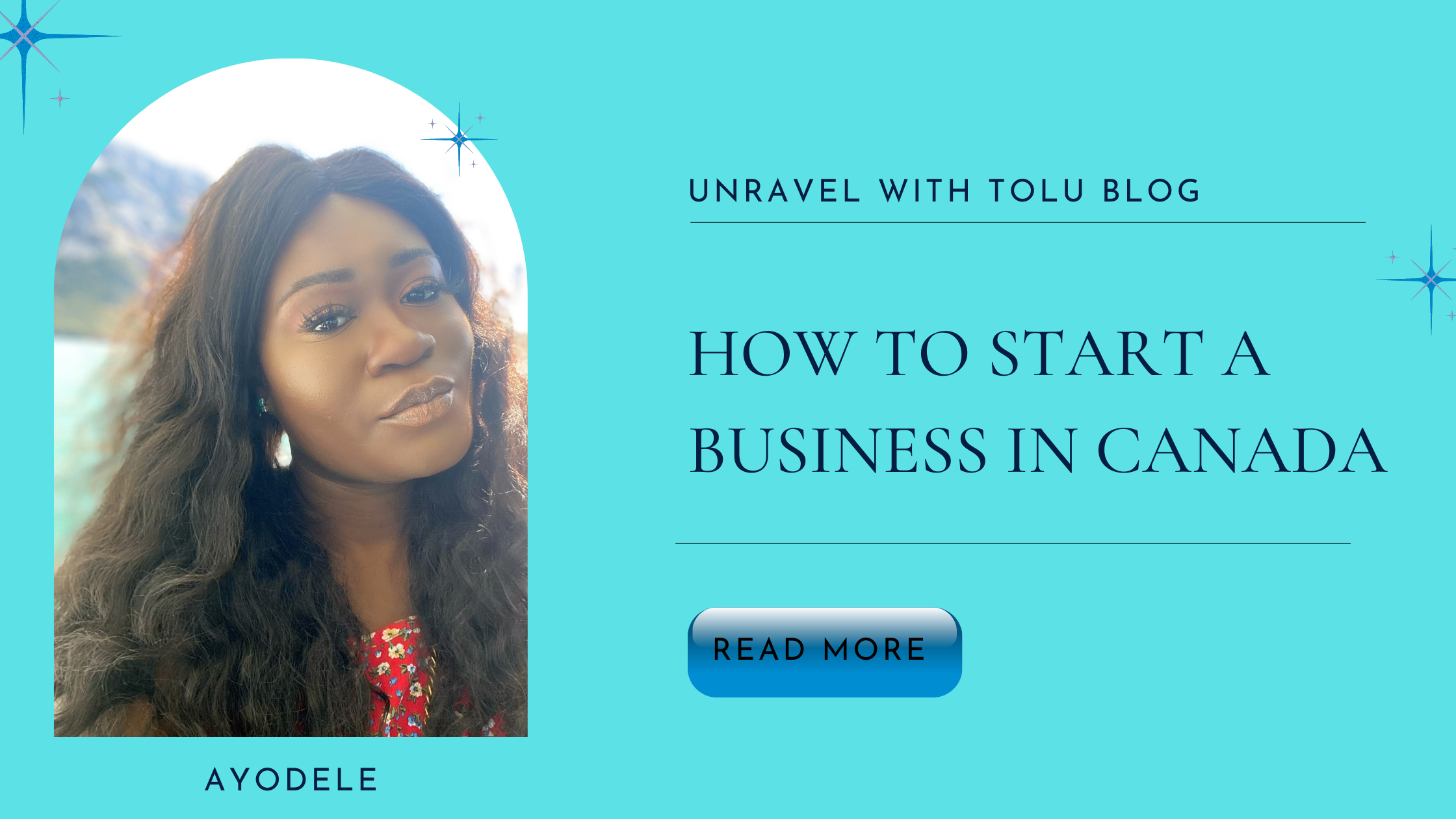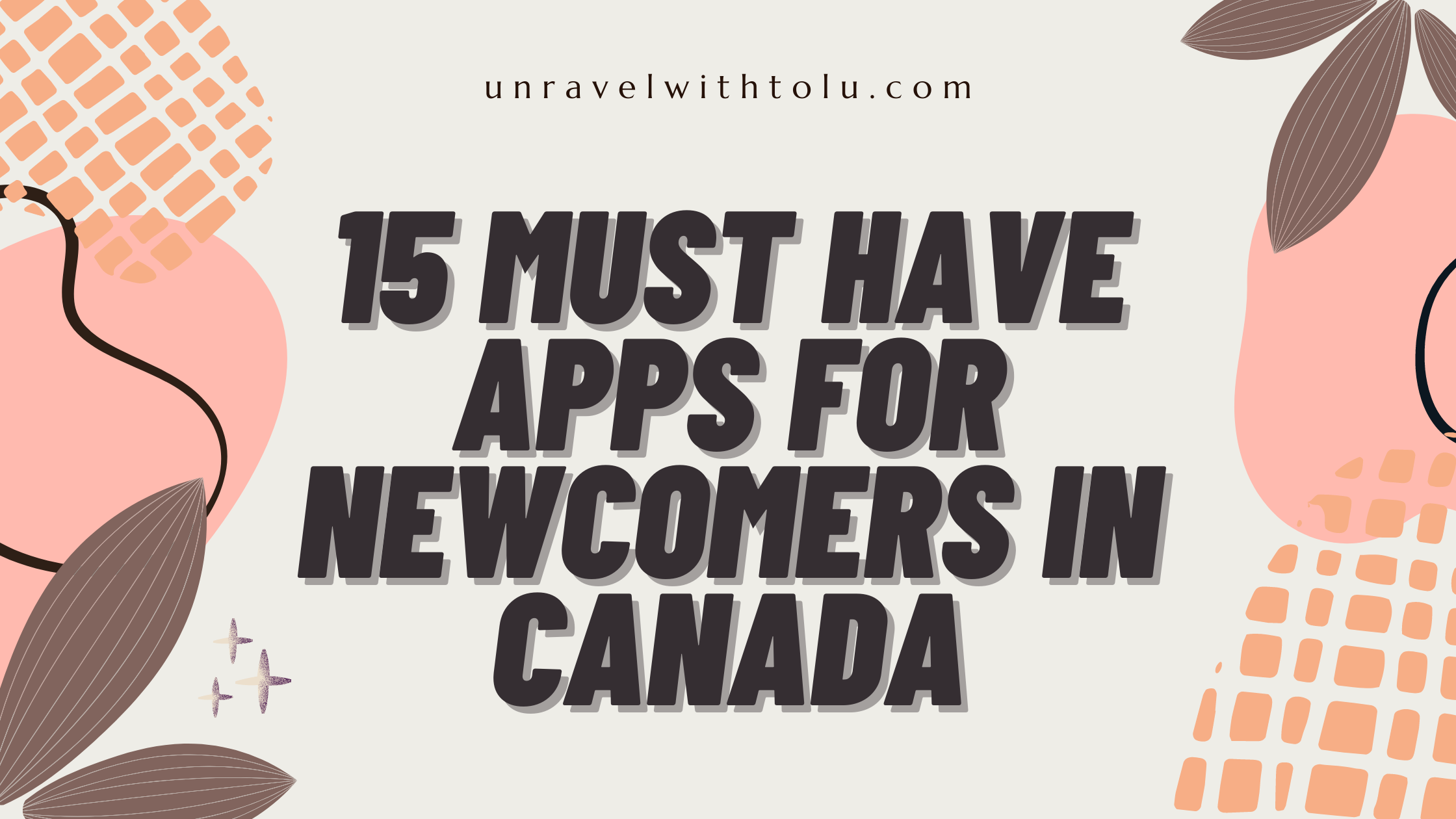
Many people choose to start a business either out of passion or seeking additional ways to make money. Whether you are the former or latter, you can still pursue your entrepreneurial dreams in Canada. Canada is home to immigrants and the process of starting a business in a foreign country can be daunting.
You may already have a business in your home country, and relocating to Canada will allow you to further develop and build it on a much larger scale. You’re unsure where to begin your research on how to start a business in Canada? In this piece, my guest, Ayodele, discusses insights from her experience launching sole proprietorship & incorporated businesses in Canada. All of the information presented in this article should be used as a preliminary research for anyone considering launching a business in Canada.
Introduce yourself
My name is Ayodele, based in Ontario, Canada and originally from Lagos, Nigeria. In 2007, I relocated to Canada. I’ve worked for prominent fashion retail companies including Aldo Shoes, Bikini Village, and Coach New York during my more than 10 years in retail management. After learning so much about the fashion industry and how to operate a business, I decided to open Liza and Grace, my own store.
Is there a difference between a business & a side hustle in Canada?
In my perspective, the distinction between a business and a side hustle is as follows: A business is an organization or enterprising entity that engages in commercial, industrial, or professional activity. They are usually government-registered and recognized, whereas a side hustle is a phrase used to describe the act of earning money in addition to one’s main source of income, usually with the goal of expanding one’s income.
Can a temporary resident own a business in Canada?
A non-citizen / Permanent resident can most definitely own a registered business in Canada. You have to make sure you register it and do your due diligence.
Is it easier to start a business as a sole proprietorship or as a corporation in Canada?
Let me start by explaining the difference between the 2 types of business. A corporation is a legal entity that separates the business from its owner/operator. A sole proprietorship is an unincorporated business that is owned by one individual. It is the simplest kind of business structure. The owner of a sole proprietorship has sole responsibility for making decisions, receives all the profits, claims all losses, and does not have separate legal status from the business.
The answer to this question is as unique as to the business you are starting. Most business owners usually start as a sole proprietorship and as they scale and keep up with the demands of business they eventually change to an incorporated business. My advice would be depending on the type of business you are running, do your research and register the business the best way from the beginning in a way that suits and protects you and your future business enterprise.
Should one register a business under their own name or a business name?
Your business should be registered in your business name from the initial stage. I personally like to keep my personal name private and form a separate identity for my business however if your business name is your actual name for your brand go ahead and do so based on your personal preference.
Whatever you do, double-check that the business name you want to use is available and hasn’t already been registered to another company. This will save you a lot of time and frustration in the long run, and you won’t be disappointed, especially if you’re excited about a new business name only to find out it’s already taken right before you register it.
What are the steps to register a business in Canada?
Before you register a business in Canada make sure you develop a business plan this is going to be your blueprint throughout your entrepreneurial journey.
The most important step towards registering your business is checking for your intended business name availability online & NUANS.
NUANS allows you to search for the availability of your intended business name Canada-wide and provincially. If it is available you can go ahead with registering your business name. If not, you will have to look for another name.
You can register your business on the Service Ontario website depending on the type of business you want to register: Sole proprietorship will cost about $60-$80 whereas incorporated can cost up to $500.
Read Also
How To Pursue That Food Making Passion & Make It A Business
Is it necessary to apply for GST/HST after a business is registered?
So now you have registered your business and you have chosen whether you want to be a sole proprietor or Incorporated. You can voluntarily apply for a GST number for your business. However, you are not required to unless you earn more than $30,000 or more in a quarter of your business term.
In my case, a few months after registering my business, the revenue increased so I obtained a GST/HST number. This also allows you to claim GST credits for your business purchases during tax season.
Does the process of registering a business in Canada vary from province to province?
Each province may have its own set of guidelines for starting a business, as well as for obtaining licences and permits (such as a liquor licence), but the major registration requirements are consistent across the board.
Incorporating your business provincially allows you to do business under a corporate name in the province your business is registered. However, if you incorporate your business on a federal level, you can open locations in all provinces in Canada.
Most home-based or small businesses start small within the province they are located at and as the business grows they make the necessary changes.
Does one need to open a business bank account right away after the business is registered?
There are so many benefits of having a business account as soon as you register your business. Some of the benefits include:
- Building business credit.
- A good way to separate your business dollars from your personal dollars.
- Tracking business expenses. This is highly useful during tax season as you do not have to stress about differentiating business and personal expenses.
Setting up a business bank account is more professional in the long run and gives your company more credibility.
When a company starts to grow, it will need to hire people. How does one know what to do to prepare for employee hiring?
As your business grows it is important to
- learn how to delegate certain tasks so
- hire an accountant to help you with payroll and bookkeeping.
- focus on the specific things that need your attention.
You can start by hiring a VA (virtual assistant ) or even a social media manager so you don’t get small business owner burnout ( yes it is a real thing )
Before you start hiring employees make sure your business is at this stage in which you feel you need to help where you feel you need help fulfilling the demands of your customers. Before hiring your first employees think of the following :
- Are they are allowed to work in Canada?
- The minimum wage in your business location. For example, In Ontario, the minimum wage went up in January 2022 to $15/hr .
- Can ur business afford to pay the wages of another person consistently?
- Can I provide the appropriate employment contract in order to protect yourself/business and the employee?
How can I raise funds to start a business in Canada?
There are many funding opportunities currently for business owners in Canada if you go to the canada.ca or even the cic.gc.ca website and search for small business funding.
Also, CIBC just launched the black entrepreneur program that offers a loan for up to $250,000. This is why it is vital to register your business and open a business bank account in order to be taken seriously when applying for funding and to ensure that you have the necessary bank account to receive the funds.
In other cases, the government will invite you to apply for grants due to your registered status in Canada.
Recommend a couple of resources that will be great for someone starting a business.
A couple of resources I would recommend would be the service Ontario website
post a comment
You must be logged in to post a comment.

